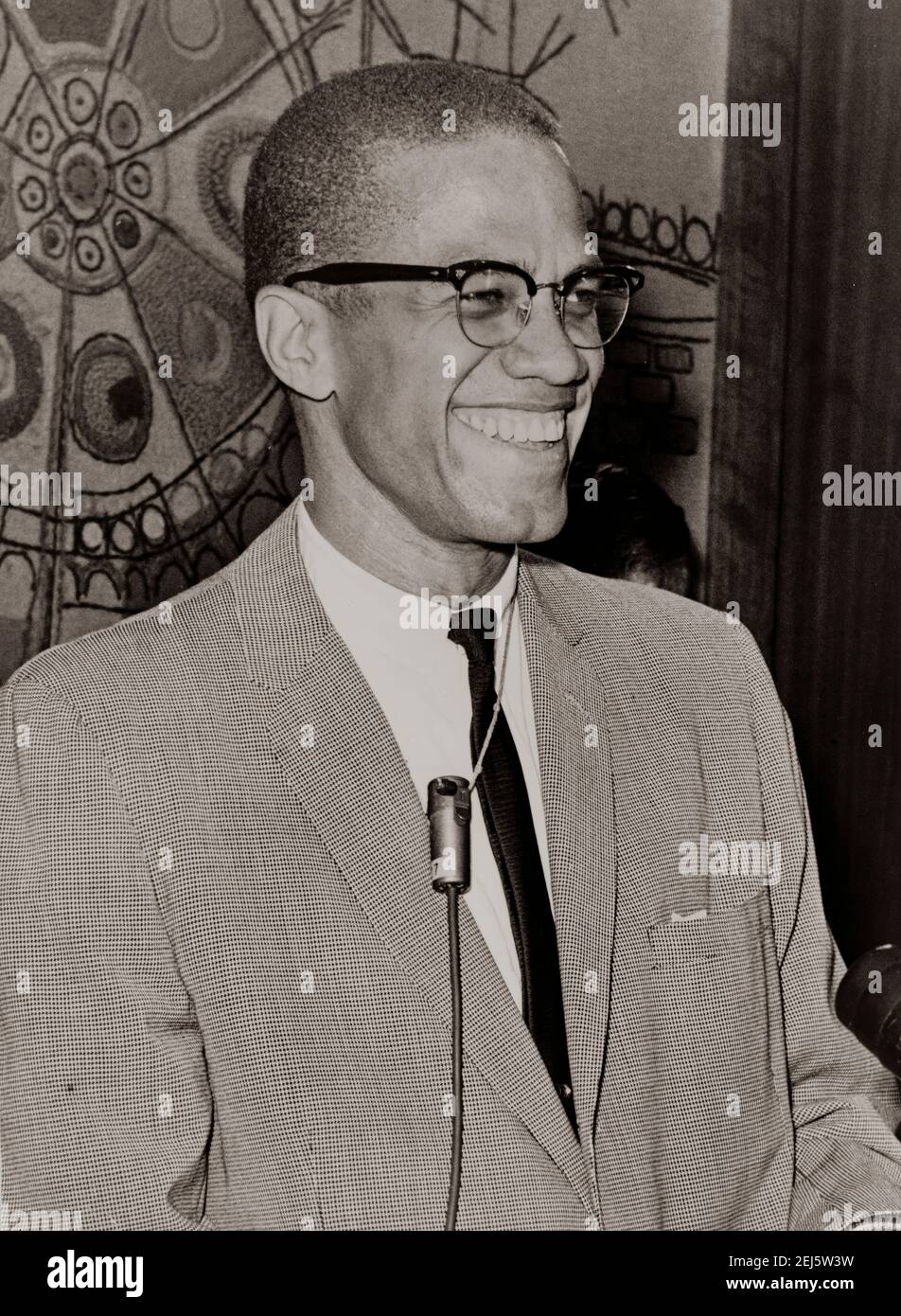Malcolm X during an interview, half-length portrait, facing right. Photo by Ed Ford

Image details
Contributor:
American Photo Archive / Alamy Stock PhotoImage ID:
2EJ5W3WFile size:
108.5 MB (5.7 MB Compressed download)Releases:
Model - no | Property - noDo I need a release?Dimensions:
5272 x 7194 px | 44.6 x 60.9 cm | 17.6 x 24 inches | 300dpiLocation:
New YorkMore information:
This image is a public domain image, which means either that copyright has expired in the image or the copyright holder has waived their copyright. Alamy charges you a fee for access to the high resolution copy of the image.
This image could have imperfections as it’s either historical or reportage.
Malcolm X (born Malcolm Little; May 19, 1925 – February 21, 1965) was an African American Muslim minister and human rights activist who was a popular figure during the civil rights movement. He is best known for his time spent as a vocal spokesman for the Nation of Islam. Malcolm spent his adolescence living in a series of foster homes or with relatives after his father's death and his mother's hospitalization. He engaged in several illicit activities, eventually being sentenced to 10 years in prison in 1946 for larceny and breaking and entering. In prison, he joined the Nation of Islam, adopted the name Malcolm X (to symbolize his unknown African ancestral surname), and quickly became one of the organization's most influential leaders after being paroled in 1952. Malcolm X then served as the public face of the organization for a dozen years, where he advocated for black empowerment, black supremacy, and the separation of black and white Americans, and publicly criticized the mainstream civil rights movement for its emphasis on nonviolence and racial integration. Malcolm X also expressed pride in some of the Nation's social welfare achievements, namely its free drug rehabilitation program. Throughout his life beginning in the 1950s, Malcolm X endured surveillance from the Federal Bureau of Investigation (FBI) for the Nation's supposed links to communism. In the 1960s, Malcolm X began to grow disillusioned with the Nation of Islam, as well as with its leader Elijah Muhammad. He subsequently embraced Sunni Islam and the civil rights movement after completing the Hajj to Mecca, and became known as el-Hajj Malik el-Shabazz.[A] After a brief period of travel across Africa, he publicly renounced the Nation of Islam and founded the Islamic Muslim Mosque, Inc. (MMI) and the Pan-African Organization of Afro-American Unity. Throughout 1964, his conflict with the Nation of Islam intensified, and he was repeatedly sent death threats. On February 21, 1965, he was assassinated.